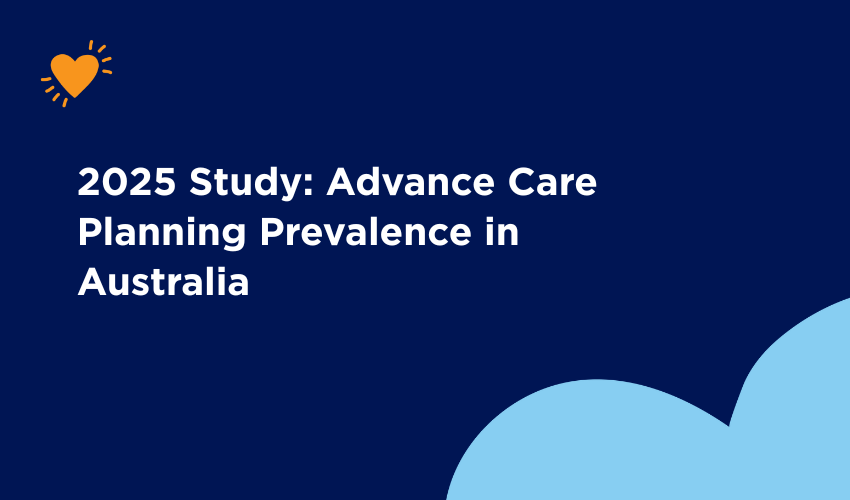A landmark national study commissioned by Advance Care Planning Australia reveals that only one in three Australians (33%) have taken steps to plan for their future health care, highlighting a widespread lack of preparation for critical medical decisions.
Dr Catherine Joyce, National Manager for Advance Care Planning Australia says the findings show a major gap in routine health care.
“This study shows that advance care planning is not a standard part of basic health care in Australia with many Australians missing the opportunity to plan ahead and ensure their health care preferences are known and respected,” Dr Joyce said.
This is the first national prevalence study to take a modern approach to advance care planning. Rather than focusing solely on document completion, the research considers other key elements such as talking with loved ones, choosing substitute decision-makers, and overall motivators and attitudes that drive uptake.
“We often think of advance care planning as just filling out a form, but it’s much more than that. It’s about open communication, understanding your options, and making sure your choices guide your care – especially during life’s most difficult moments,” Dr Joyce said.
“While it might feel uncomfortable to think about, planning ahead can be one of the most empowering and compassionate choices you make. It brings peace of mind to individuals. It also reduces the burden on family, friends, and loved ones who are put in the difficult position of having to make decisions for others during times of crisis.”
12% of those who had discussed their future health did so with a health care professional. Although few people discussed ACP with a health care professional, those who did found them to be respectful, knowledgeable, confident and comfortable. Health professionals are seen as a trusted source of information about ACP. This indicates that there is an opportunity to encourage these touchpoints.
On average, Australians stored their ACD in two different locations. Only one in five stored their ACD with their doctor. This is a concerning gap given that doctors need ready access to these documents in order to act on a person’s wishes if needed.
The national study surveyed 3,390 Australian adults in February-March 2025 through a quantitative online survey with participants voicing the importance of advance care planning. The results were weighted to represent the broader population by age, gender, and state or territory.
This research sets a vital national benchmark for understanding the uptake of advance care planning across Australia. It also lays the groundwork for tracking future changes in awareness, attitudes, and participation over time.
For more information click here: Advance Care Planning research and publications
Opportunity to partner with Palliative Care NSW to start these conversations
This research shows that individuals are open to talking about advance care planning and agree that it is important, yet those conversations remain difficult to have. Palliative Care NSW is committed to supporting the community to start these conversations and to complete their Advance Care Directive. Our Community Conversations program is one way we can support your service or organisation to connect with your community, so that they can better understand what palliative care is and how to access, and can get tips and resources to start their advance care planning. In the last 12 months, we have delivered 20 Community Conversations across NSW with excellent feedback. If you would like to partner with us to deliver a Community Conversation in your area, please email anthony@palliativecarensw.org.au
Are you an individual who would like to know more about advance care planning?
Join or host a Community Conversation in your community, where we discuss advance care planning and provide tools and tips. More information HERE.
Or join our online PalliLEARN session on the 16th September on What Matters Most to Me: Register HERE.
Original article published by Advance Care Planning Australia.


